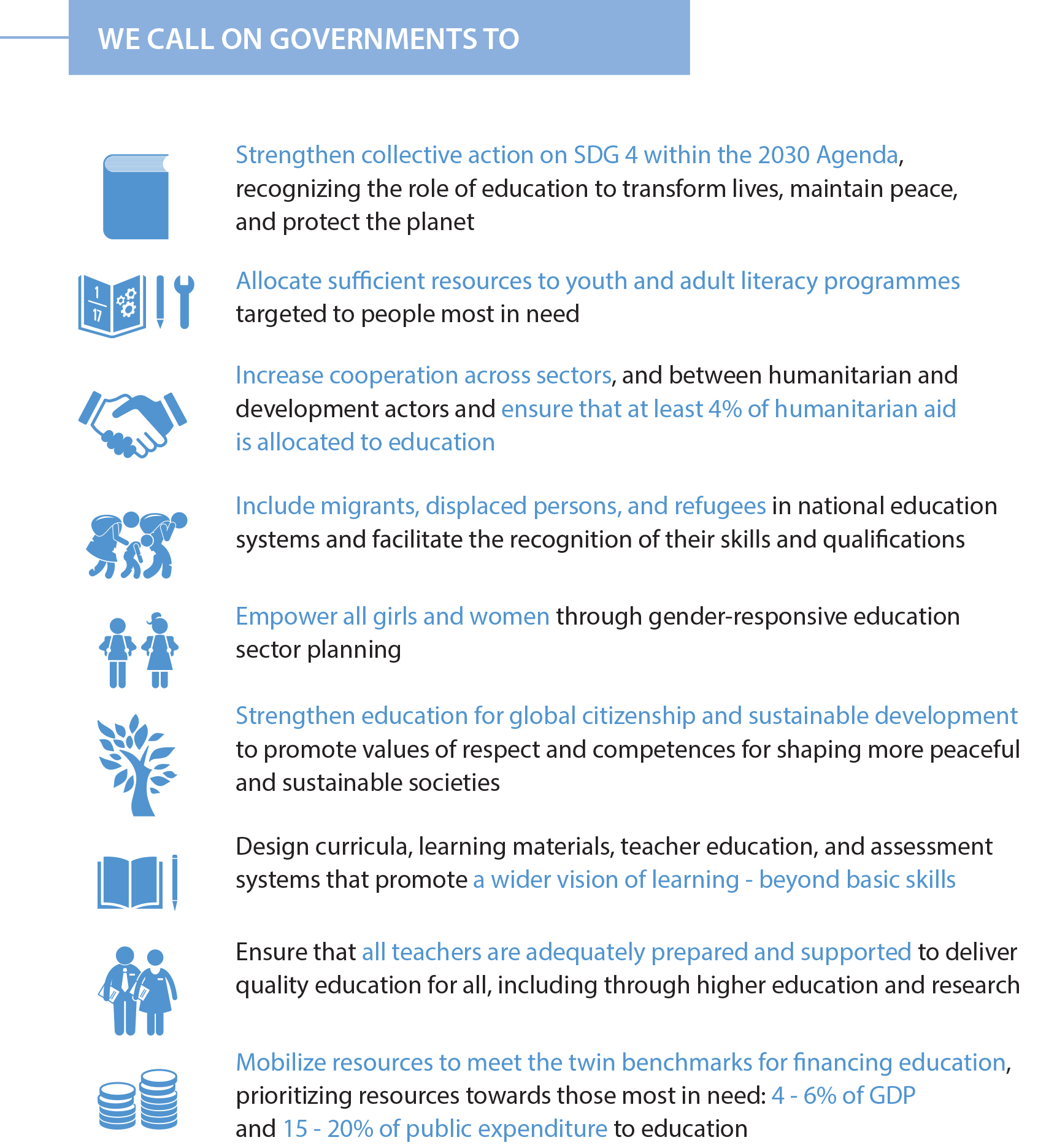Education is the driving force in achieving the 2030 Agenda for Sustainable Development. Education equips people with the competences to secure decent jobs (SDG 8), the skills to take action to combat climate change (SDG 13), and the values to build more inclusive and peaceful societies (SDG 16). It carries the potential to reduce inequalities, on condition that inclusion and equity stand at the heart of all policies (SDG 16).
However, as we enter the last decade of the 2030 Agenda for Sustainable Development, data collected and analysed by the UNESCO Institute for Statistics (UIS) and the Global Education Monitoring Report (GEM Report) show a worrying trend. Indeed, the world is not on track to achieve SDG 4.
According their new report, Meeting Commitments: are countries on track to achieve SDG 4?, if the world continues on the current trends, 220 million children and youth will still be excluded from school in 2030 and one in three young people will not complete secondary education.
This worrying trend is coupled with the data showing that the proportion of trained teachers has also been falling. In sub-Saharan Africa, only 50% of teachers meet the minimum required training at secondary level, and 64% in primary, because since 2000, the focus has been on solving the teacher shortage and schools have been hiring contract teachers without qualifications to close the quantitative gaps at lower cost.
Teachers are at the heart of inclusive and equitable education. This lack of trained teachers results in poor learning outcomes for students and threatens the achievement of inclusive, equitable, quality education for all.
In light of these worrisome trends, The International Task Force on Teachers for Education 2030 reiterates its belief that holistic national teacher policies including the widest range of interlocking dimensions affecting teachers and teaching are the most efficient approach to improve teacher quantity and teaching quality.
A complementary publication prepared by the GEM Report calls for countries to ensure their education plans match their commitments. Titled Beyond Commitments: how countries implement SDG 4, the report encourages countries to focus their work on six key policy areas in order to achieve SDG 4, two of which recommend clear focus on teacher development. This is emphasised by the SDG-Education 2030 Steering Committee which lists “adequate training and support for teachers” as one of the six areas requiring systematic policy attention.
The Teacher Task Force believes that it is every learner’s right to be taught by qualified, motivated and empowered teachers. We also believe that teachers should be working within well-resourced, efficient and effectively governed systems to achieve inclusive and equitable quality education for all. It is our mission to mobilize governments and other stakeholders for the achievement of these goals through the implementation of comprehensive policies backed by sound data as outlined in our 2018-2021 Strategic Plan.
For this reason, the Teacher Task Force supports the call made by UNESCO, the SDG-Education 2030 Steering Committee and the global education community at large, on the occasion of the High-Level Political Forum to #CommitToEducation.

The High-Level Political Forum (HLPF) will take place from 9 to 18 July 2019 at United Nations Headquarters in New York, under the theme “Empowering people and ensuring inclusiveness and equality”. The HLPF is the main United Nations platform on sustainable development and it has a central role in the follow-up and review of the 2030 Agenda for Sustainable Development and the Sustainable Development Goals at the global level.
For more information, visit the HLPF 2019 UNESCO webpage and the SDG-Education 2030 Steering Committee website.
#CommitToEducation campaign is available at the following link.